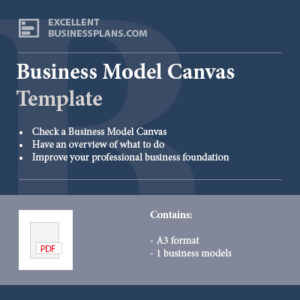One way to identify and map your competition is to engage in market research, analyze their offerings, and understand how they differentiate themselves from your business. This can help you gain insight into your industry and develop a better understanding of where you fit in the competitive landscape.
If you have a business, it’s important to know who your competitors are. To find your competitors, you can search online for businesses that offer the same products or services. You can also look for companies in the same industry or geographic area. Once you have a list of competitors, you can research their products, services, and prices to see how you compare.
Mapping your competitive environment.
Mapping your competitive environment or competitive analysis means using different tools to help you understand the people and companies that you are competing with. It’s like making a chart or diagram that shows what the other companies do, how successful they are, and how you can be better than them.
Mapping the competition.
Mapping the competition can seem be easy at first, but then as you dig in deeper it gets harder. This is where you compare elements of your business with others. Competitive environment.
Comparing yourself to the competition can be interesting. Look what you do better, and check where you need to improve.
Generic or specific competition, the difference.
Generic competition means competing against everyone else in the same industry, while specific competition means competing against a specific individual or group. So, generic competition is more of a general race to the top, while specific competition is a head-to-head battle with a specific opponent.
Comparing your business performance to that of your competitors can be a useful exercise for management during presentations. It can help open their eyes to the reality of the situation and motivate them to strive for better performance. People are naturally curious to know how their business is doing compared to the competition, and many tend to be confident that they are better than their rivals.
Market shares are a useful way of measuring the performance of mature markets. Markets typically go through cycles of boom and bust, and in the software economy, the market can be winner-takes-all.
How to compete in an existing mature market?
Looking for ways to stand out in an established market? Here’s how you can compete.
Need help creating a new market? Read on how to use the blue ocean strategy to create a new market in an existing setup, and explore the edge strategy for spinouts.
Industry dynamics.
Gain insights into the most up-to-date trends in your industry to drive growth and optimize costs.
Learning from outside of your industry.
Our favorite. Drawing inspiration from others is a great way to help you improve. You can take cues from nature, your past mistakes, and of course, your competitors. You can also learn from companies outside of your industry, too. Consider what they do particularly well – their branding, customer service, store layouts, advertising material, software use, staff, promotional strategies, etc. This kind of thinking helps you to assess and refine the processes within your own organization.
Biomimicry is a practice that involves looking to nature to find solutions to real-world problems. By studying and adapting the strategies used by plants and animals, we can develop innovative and effective solutions that are not only helpful, but also sustainable.
Comparing to small, medium or large companies.
Evaluate how your own industry is performing. Are you larger or smaller than your competitors? Identify where you excel and areas for improvement. Create a list of five smaller, five medium, and five larger companies. Analyze what sets each apart and create a rating system to track their differences. Although it may be difficult to quantify, this exercise is still useful.
Analyze How Your Concepts Fare.
Compare your concept with your older version to evaluate how it has improved. Take screenshots of your current concept and compare it to the one from last year. This will provide you with valuable insights into the effectiveness of your current concept.
Time and speed of change.
Keeping up with the competition is important if you want to succeed. Consider timing when making comparisons, as trends can quickly change. To stay ahead, you’ll need to be aware of the trend, create a strong vision and mission, and decide which markets you want to pursue.
Where do you differentiate from the competition?
To give yourself an edge in the market, consider what sets you apart from your competition. Is it higher prices, better customer understanding, quality or cheap products, or something else? Having clarity on this can help you build your brand in the long run.
Think about factors such as your organization size (small vs large), or your pricing structure (expensive vs cheap), or product range (1 vs many). Taking the time to think this through can be very helpful.
- This is the core of your differentiator proposition. What do you different compared to the competition.
- Use the Blue Ocean Strategy Canvas for this. Find out your Unique Selling Proposition (USP).
Working with the competition, partner, takeover, joint venture.
Collaborating with competitors, partnering, taking over, or establishing joint ventures – these strategies can help you reach your business goals.
Conclusion.
First, take the time to learn about your environment so you can better understand what’s out there. Good luck on your journey!






